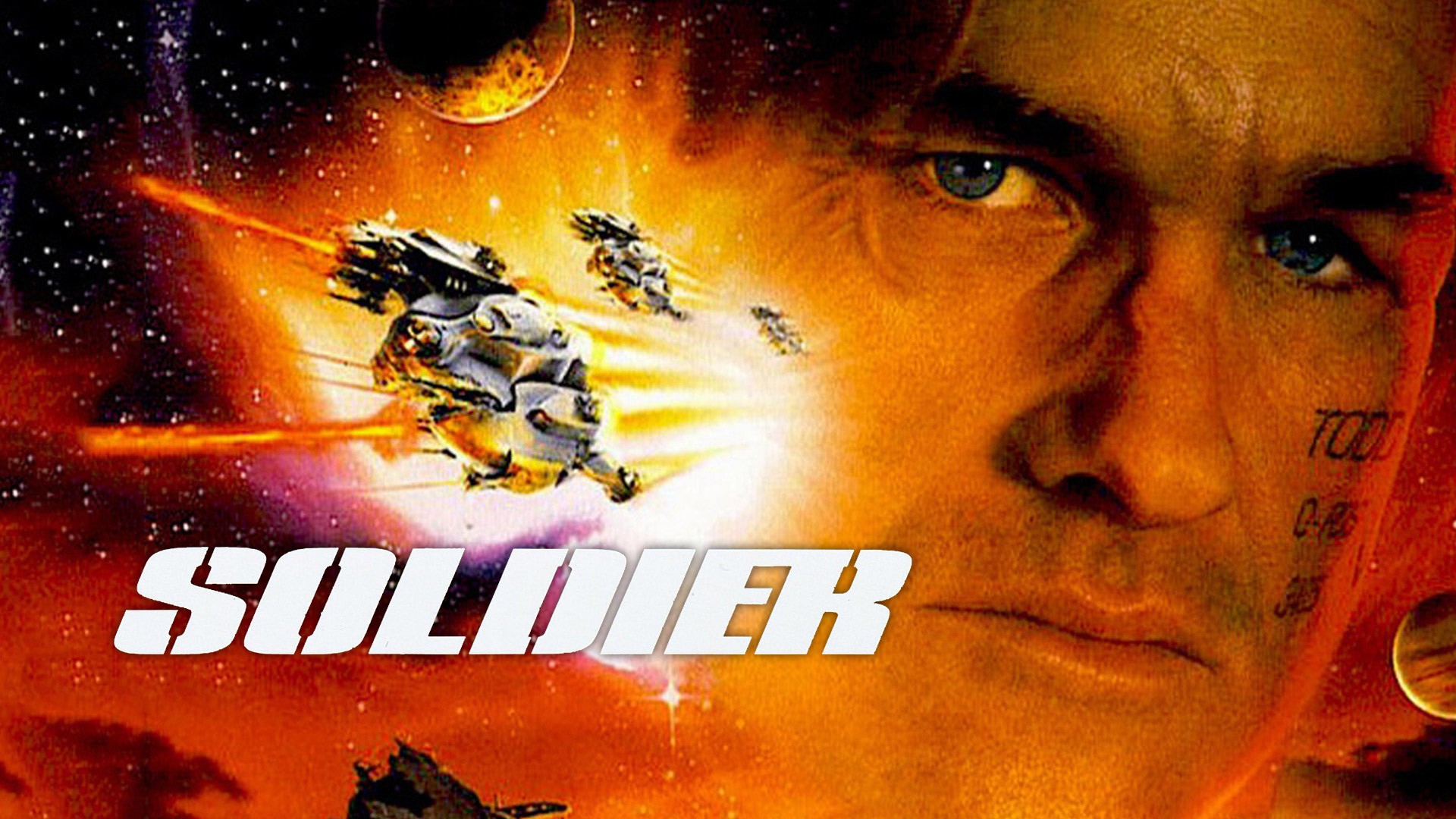Soldier (1998)

“Soldier,” released in 1998, is an American science fiction action film directed by Paul W. S. Anderson and written by David Webb Peoples. Featuring a cast led by Kurt Russell, Jason Scott Lee, Jason Isaacs, Connie Nielsen, Sean Pertwee, and Gary Busey, the film presents a futuristic narrative exploring themes of identity, humanity, and the cost of military service. As a unique entry in the science fiction genre, “Soldier” combines high-octane action with a thought-provoking story. This essay delves into the film’s plot, direction, performances, thematic elements, and its place within the broader context of science fiction cinema.
“Soldier” is set in a dystopian future where advanced technology and warfare have reached new heights. The film follows Todd (played by Kurt Russell), a veteran soldier who has been bred and trained from birth to be an elite combatant. The narrative begins with Todd’s brutal and efficient performance in combat, showcasing his skills as a soldier. However, as the story progresses, Todd finds himself outmatched by a new generation of genetically-engineered super-soldiers, leading to his forced retirement.
The plot takes a significant turn when Todd is abandoned on a desolate garbage planet after being deemed obsolete. Here, he encounters a community of refugees living in relative peace away from the conflict-ridden galaxy. Todd’s integration into this new world is fraught with challenges as he grapples with his identity and purpose. The narrative explores his transition from a weapon of war to a person capable of empathy and self-discovery.
The central conflict arises when the new generation of super-soldiers, led by the ruthless Commander Caine (Jason Isaacs), is dispatched to the garbage planet. The film’s climax centers around Todd’s struggle to protect the peaceful settlers from the invaders, culminating in a series of intense action sequences that highlight his evolution from a machine of war to a protector of the innocent.
Paul W. S. Anderson’s direction in “Soldier” is characterized by his ability to blend high-stakes action with deeper thematic concerns. Anderson, known for his work on “Event Horizon” and “Resident Evil,” brings a distinctive visual style to the film, utilizing a combination of practical effects and CGI to create a gritty, immersive futuristic setting.
The film’s visual style is marked by its bleak and dystopian aesthetic. The garbage planet, with its desolate landscapes and makeshift settlements, serves as a stark contrast to the high-tech, militaristic environments of the opening sequences. The cinematography, by Adrian Biddle, captures the harsh realities of both settings, enhancing the film’s thematic exploration of conflict and isolation.
Action sequences are a central component of the film, and Anderson’s direction ensures that they are both visually striking and narratively significant. The choreography and special effects contribute to the film’s intense and dynamic action scenes, which are integral to the story’s progression and character development.
Kurt Russell’s portrayal of Todd is a standout element of “Soldier.” Russell brings a depth and complexity to the character, capturing Todd’s transformation from a cold, efficient warrior to a man who questions his purpose and seeks redemption. Russell’s performance is both physical and emotional, conveying Todd’s internal struggle and growth throughout the film.
Jason Scott Lee’s role as the new generation super-soldier, Caine, adds a menacing and charismatic presence to the film. Lee’s portrayal of Caine as a ruthless and skilled combatant provides a compelling antagonist for Todd, driving the film’s central conflict and adding tension to the narrative.
The supporting cast, including Jason Isaacs, Connie Nielsen, Sean Pertwee, and Gary Busey, contribute to the film’s character dynamics and thematic depth. Isaacs’ performance as Commander Caine is particularly noteworthy, providing a formidable challenge for Todd and adding to the film’s exploration of the consequences of technological advancements in warfare.
Connie Nielsen’s role as the leader of the refugee community adds a human element to the film, offering a contrasting perspective to Todd’s background as a soldier. Nielsen’s performance provides a sense of hope and compassion, highlighting the potential for redemption and change.

“Soldier” explores several key themes, including the nature of identity, the impact of military service, and the search for redemption. The film examines how Todd’s identity is shaped by his role as a soldier and how his sense of self is challenged when he is removed from the battlefield.
The theme of humanity versus technology is central to the film’s narrative. Todd’s journey reflects the struggle between the dehumanizing effects of advanced military technology and the inherent value of human life and emotions. The film contrasts Todd’s transformation with the cold efficiency of the new generation of soldiers, highlighting the impact of technology on personal identity and morality.
Redemption and self-discovery are also prominent themes. Todd’s interactions with the refugees and his subsequent actions to protect them demonstrate his evolution from a weapon of war to a person capable of empathy and sacrifice. The film’s resolution emphasizes the potential for personal growth and the importance of finding one’s own path.
The emotional impact of “Soldier” is enhanced by its combination of action, drama, and thematic depth. The film’s exploration of identity and redemption resonates with viewers, creating a compelling and thought-provoking narrative that goes beyond typical action fare.

“Soldier” received mixed reviews from critics, with some praising its action sequences and performances, while others critiqued its plot and characterization. The film was noted for its ambitious attempt to combine science fiction with deeper themes, though opinions on its success in achieving this were varied.
Despite the mixed critical reception, “Soldier” has garnered a following among fans of science fiction and action genres. Its exploration of themes related to identity and technology, along with its high-octane action, has contributed to its enduring appeal.
The film’s legacy is reflected in its place within the broader context of science fiction cinema. “Soldier” represents a unique entry in the genre, offering a fresh perspective on the concept of the soldier and the consequences of technological advancements in warfare.

“Soldier” (1998) is a significant film in the science fiction action genre, blending high-octane action with a thought-provoking exploration of identity and redemption. Directed by Paul W. S. Anderson and featuring a compelling performance by Kurt Russell, the film offers a fresh take on the soldier archetype and the impact of technology on personal identity. Its combination of intense action sequences, thematic depth, and visual style ensures its place as a noteworthy entry in the science fiction canon. Despite its mixed critical reception, “Soldier” remains a memorable and influential film, reflecting the complexities of modern warfare and the search for human connection in a technologically advanced world.











